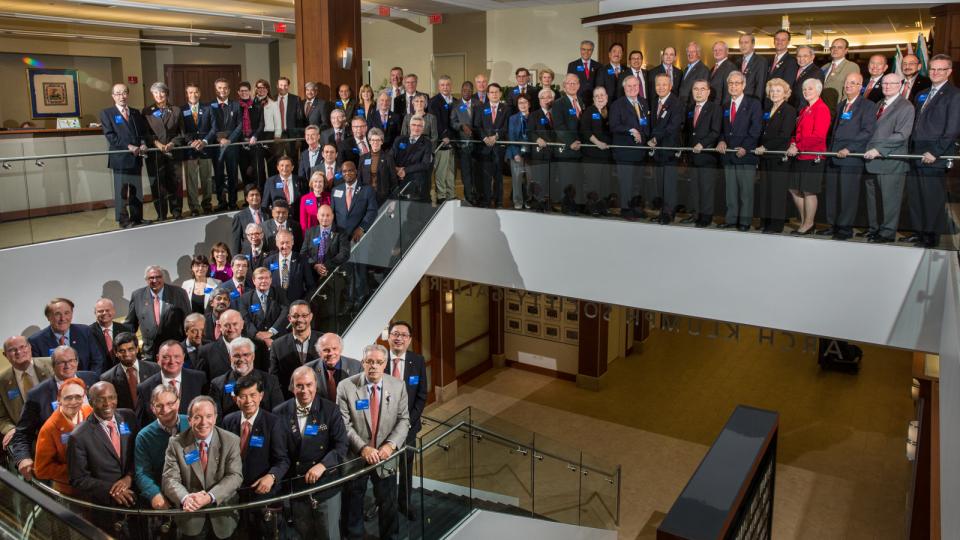Institute equips regional leaders to advance Rotary’s story

Regional leaders from around the globe gathered at Rotary World Headquarters in Evanston in early March for training they will use to inspire members in their respective areas.
Several participants - most of whom will begin their term on 1 July - noted that the true measure of the institute's success will be how well the information they learned is transmitted to Rotary members.
"We have to realize that training doesn't stop at the district level," said Michael Boyer, a Rotary public image coordinator from Pismo Beach, California, USA. "We train people really well to be governors and club presidents but we have to realize that we also have to train our members in how to talk about Rotary."
Boyer said his goal is to ensure that members can discuss Rotary's brand in a clear and compelling way. "We have to make our club presidents understand they can't just stand in front of their club and say, 'Go invite members.' They actually have to train members in how to ask and what to say," he said.
A major goal of the four-day regional leaders training institute was to equip these leaders -- regional Rotary Foundation coordinators, Rotary coordinators, Rotary public image coordinators, and endowment/major gifts advisers -- to help club and district leaders strengthen club membership, focus and foster Rotary's humanitarian service, and enhance the organization's public image.
Many participants were impressed to learn about new tools available on Rotary.org, which they practiced using during multiple workshops.
"I have used Rotary.org for years but I have realized these past couple of days how much more advanced it has become," said Alasdair Seale, an endowment/major gifts adviser from Edinburgh, Scotland. "I didn't realize, for example, that there are alumni reports that include Group Student Exchange students, vocational training teams, Ambassadorial Scholars, and Rotaractors. They are all clearly a target for membership."
Patrick Coleman, a regional Rotary Foundation coordinator from Luanshya, Zambia, said members need to be encouraged to use Rotary.org.
"(What we are learning) is very exciting because we are bringing Rotary into the 21st century," Coleman said. "We have members who brag about being born before the age of computers. But that's a bit like saying, 'I was born before cellphones so I am not going to use one.' We're here, we need to use these tools."
Sherri Muniz, a Rotary coordinator from San Antonio, Texas, said the value of the institute for her was being able to share ideas.
"The program itself is designed to teach us teamwork," Muniz said. "But we are building connections with people who have success stories, with people who have similar challenges, and those connections will last us far beyond the end of the institute."
Rotary News

